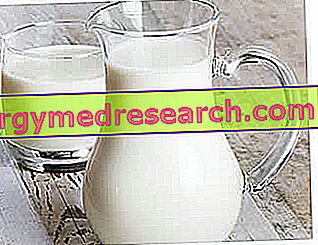
Property and Benefits
In addition to the characteristics listed in the previous article, propolis also acts on our body in other ways:
- stimulates the thymus, the gland responsible for the regulation of the hormonal and immune system during puberty;
- activates the metabolism of the cells and stimulates their division (this explains how propolis acts on the healing of wounds, accelerating their course);
- in the geriatric field improvements were observed in both physical and mental conditions of the elderly who took it regularly;
- propolis is an adjuvant in all inflammations of the skin and mucous membranes, even in those with production of pus; from this point of view its applications can be multiple since not only the digestive tract (from the mouth to the rectum), the respiratory system (from the nose to the pulmonary alveoli) and the genital organs are covered with mucous membranes, but also the joints, where thin membranes line the ends of the bones;
- propolis has also proved useful in the case of metabolic disorders: its regular intake seems to correct high blood lipids and circulatory problems, but of course in these cases we must first of all act on the diet, introducing healthier eating habits.
Against allergies

If you decide to try this treatment, it is necessary to pay close attention to the percentage of pollen present in the propolis, because, based on the severity of your allergy and the proportions between the various types of pollen present, you may risk getting allergic reactions unwanted. A useful but not always effective way to prevent adverse reactions is this: spread a small amount of propolis in an area where the skin is more delicate and repeat the operation on the same area after 24 and 48 hours; if the skin has noticeably reddened it means that it is not tolerated that type of propolis, therefore it is necessary to avoid taking it.
Precautions and contraindications
Propolis should not be given to children under the age of 3 years.
Subjects who are aware of allergies and intolerances towards products deriving from the hive, or with allergies to pollen and / or bee venom, must absolutely not use products containing propolis.
In phytovigilance are known adverse effects ranging from atopic eczemas, related to the use of propolis-based ointments, to edema at the level of the mouth and tongue, up to acute asthmatic crises due to vasoconstriction caused by anaphylactic shocks that lead to hospitalization of patient.
Propolis-based products
Formulations on the market and therapeutic indications
The pharmaceutical forms on the market are numerous, but the most frequently used are the hydroalcoholic extract, or tincture, (10-40 drops, 2-3 times a day); the dry extract (1 or 2 200mg capsules 2-3 times a day); chewable tablets (1 for 3 times a day); the glycolic extract for external use, then creams, ointments, lotions, sprays and mouthwashes.
A good propolis tincture should contain 50 to 70% propolis.
These products are used for various problems, so it can be said that propolis is a phytotherapy that offers a valid aid in the treatment of various symptoms:
- OTORINOLARINGOIATRIC DISEASES (inflammation of the mouth and pharynx; colds, sinusitis, tonsillitis and otitis)
- DISEASES OF THE RESPIRATORY PATHS (allergic rhinitis and acute and chronic bronchitis);
- DIGESTIVE TRACT DISEASES (gingivitis, halitosis, canker sores, toothache, dental abscesses, gastric and duodenal ulcers);
- DISEASES OF THE UROGENITAL APPARATUS (nephritis; cystitis; inflammation of the urethra, prostate, vagina);
- SKIN DISEASES (psoriasis, cold sores, boils, acne, purulent wounds that are difficult to heal, burns and sunburn);
- WOUNDS AND CONTUSIONS;
- METABOLIC DISORDERS (eg hypercholesterolemia);
- DEFICIT OF THE IMMUNE SYSTEM (prophylaxis against seasonal ailments and relapses of infectious diseases).



